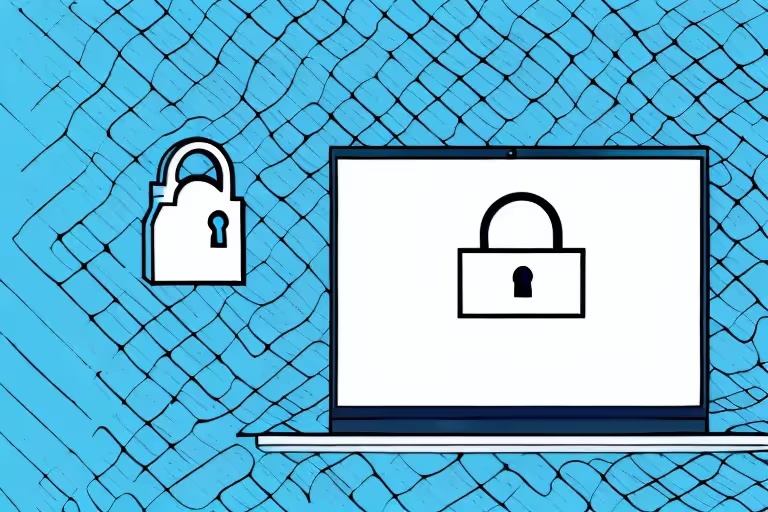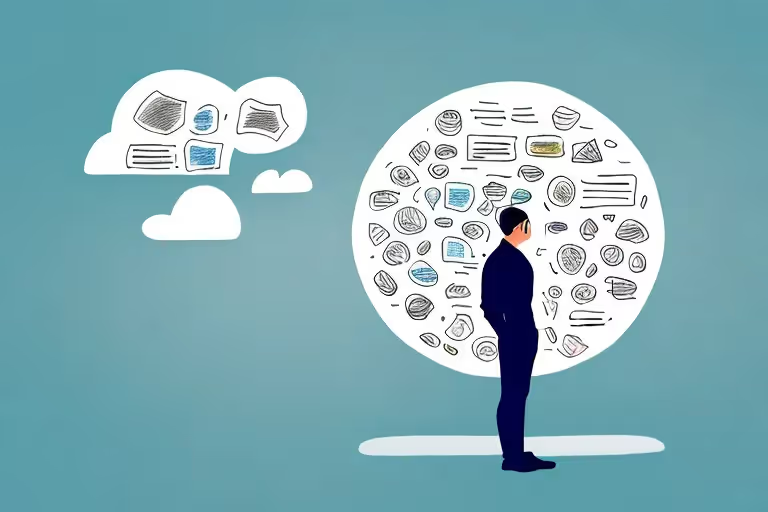In today's digital world, website and content blocking is a common practice employed by internet service providers, governments, and organizations. However, there are times when you may require access to these blocked websites and content. Fortunately, there are several methods you can use to unblock websites and content, depending on your needs and preferences. In this article, we will discuss the reasons and types of content restrictions, methods to unblock websites and content, evaluating the best unblock tools, and legal and ethical considerations.
Understanding Website and Content Blocking
Website and content blocking is a practice whereby access to specific websites or online content is restricted or prohibited. This restriction is usually imposed by internet service providers, governmental organizations, or even private organizations. The primary aim of website and content blocking is often to prevent users from accessing material deemed inappropriate, offensive, or dangerous.
While website and content blocking can be a useful tool, it is not without controversy. Some people argue that it violates the principles of free speech and open access to information. Others argue that it is necessary to protect vulnerable populations, such as children or those who are susceptible to addiction.
Reasons for Blocked Websites and Content
Website and content blocking can be employed for various reasons. The primary reasons include but are not limited to:
- Preventing access to illegal or pirated content. This includes sites that offer illegal downloads of copyrighted material, such as movies, music, or software.
- Protecting children from accessing inappropriate or explicit content. This can include pornography, violent or graphic content, or sites that promote hate speech or discrimination.
- Enhancing cybersecurity and preventing users from accessing malicious sites that can harm their devices or steal their data. This includes sites that distribute malware, phishing scams, or other types of cyberattacks.
- Preventing access to gambling sites to curb addiction and gambling-related problems. This can include online casinos, sports betting sites, or other forms of online gambling.
- Blocking access to social or political content in countries with strict government regulations. This can include sites that promote dissent or criticism of the government, or sites that are deemed to be a threat to national security.
It is worth noting that the reasons for website and content blocking can vary depending on the country or organization that is implementing the restrictions. What is considered inappropriate or dangerous in one context may not be in another.
Types of Content Restrictions
Websites and content can be restricted in various ways. The most common types of content restrictions include:
- IP-based blocking, which restricts access based on the IP address of the user's device. This method is often used to block access to sites from specific geographic regions.
- DNS-based blocking, which restricts access based on the domain name system (DNS) settings used by the user's device. This method is often used to block access to sites that are known to distribute malware or other types of cyberattacks.
- Keyword-based blocking, which restricts access to sites containing specific keywords or phrases. This method is often used to block access to sites that promote hate speech, discrimination, or other types of harmful content.
- URL-based blocking, which restricts access to specific URLs or web addresses. This method is often used to block access to specific pages or sites that are deemed to be inappropriate or dangerous.
It is important to note that website and content blocking is not foolproof. There are ways for users to bypass these restrictions, such as by using a virtual private network (VPN) or by accessing sites through a proxy server. Additionally, some argue that website and content blocking can have unintended consequences, such as driving users to seek out more extreme or dangerous content.
In conclusion, website and content blocking is a complex issue with no easy answers. While it can be a useful tool for protecting vulnerable populations and enhancing cybersecurity, it is also a controversial practice that raises questions about free speech and open access to information.
Methods to Unblock Websites and Content
Accessing websites and content that are restricted by your internet service provider or government can be frustrating. Fortunately, there are several methods you can use to unblock websites and access restricted content. These methods include:
Using a VPN (Virtual Private Network)
A VPN is one of the most popular and effective methods of unblocking websites and content. A VPN encrypts your internet traffic and routes it through a remote server, making it appear as though you are located in a different location. By doing so, a VPN can help you bypass website and content restrictions imposed by your internet service provider or government.
Additionally, a VPN can enhance your online security by encrypting your internet traffic and protecting your online activities from prying eyes. However, the quality and effectiveness of VPNs differ, and you should choose a VPN that is fast, secure, and reliable.
Some VPNs also offer additional features, such as ad-blocking and malware protection, that can further enhance your online experience. Furthermore, many VPNs offer a free trial or money-back guarantee, allowing you to test their service before making a long-term commitment.
Utilizing Proxy Servers
A proxy server is another method of unblocking websites and content. A proxy server acts as a middleman between your device and the internet. When you use a proxy, your device sends requests to the server, which then retrieves the content you requested and sends it back to you. By doing so, a proxy can help you bypass website and content restrictions imposed by your internet service provider or government.
However, proxies can be slow and unreliable, and some can even compromise your privacy and security. It is advisable to choose a trusted and secure proxy server to avoid these problems. Additionally, some proxy servers may require you to pay for their services, while others may offer a free version that comes with limited features.
Trying the Tor Browser
The Tor browser is a free and open-source browser that enables you to access the internet anonymously. The Tor browser works by routing your internet traffic through a network of servers worldwide, making it difficult to trace your online activities or identify your location.
Notably, the Tor browser can help you bypass website and content restrictions and protect your online privacy and security. However, the Tor browser can be slow, and some websites may block access from Tor exit nodes. Additionally, using the Tor browser may raise suspicion and attract unwanted attention from your internet service provider or government.
Changing DNS Settings
DNS blocking is a common method of restricting access to websites and content. By changing your DNS settings, you can bypass some content restrictions imposed by your internet service provider or government. You can use free public DNS servers, such as Google DNS or OpenDNS, to bypass DNS-based blocking.
However, changing DNS settings may not always work, especially when other content restrictions, such as URL or IP blocking, are employed. Additionally, changing your DNS settings may affect your internet speed and cause other connectivity issues.
Leveraging Browser Extensions
Browser extensions, such as ZenMate and Hola, can help you bypass website and content restrictions. Browser extensions work by routing your internet traffic through a remote server, making it appear as though you are located in a different location.
However, browser extensions can compromise your online privacy and security, and some can even contain malware or adware. It is advisable to choose a trusted and secure browser extension to avoid these problems. Additionally, some browser extensions may require you to pay for their services, while others may offer a free version that comes with limited features.
In conclusion, there are several methods you can use to unblock websites and access restricted content. However, each method has its advantages and disadvantages, and you should choose the method that best suits your needs and preferences. It is also important to ensure that you use these methods responsibly and in compliance with local laws and regulations.
Evaluating the Best Unblock Tools
When choosing an unblock tool, you should consider the following factors:
Speed and Performance
The best unblock tools should be fast and reliable, with minimal impact on your internet speed and performance.
Security and Privacy
The best unblock tools should protect your online privacy and security, with robust encryption and no logs policies
Ease of Use
The best unblock tools should be easy to install, set up, and use, with user-friendly interfaces and clear instructions.
Cost and Subscription Plans
The best unblock tools should offer flexible and affordable subscription plans, with money-back guarantees and free trial periods.
Legal and Ethical Considerations
While unblocking websites and content can be a useful tool, you should always consider the legal and ethical implications of doing so. Some of the legal and ethical considerations include:
Respecting Copyright Laws
Unblocking copyrighted content can lead to legal action, including fines and lawsuits. You should always ensure that the content you access is legal and obtained from legitimate sources.
Understanding Regional Regulations
The legality of unblocking websites and content varies by region and country. You should always ensure that your actions are legal and comply with regional regulations.
Balancing Privacy and Security Concerns
Unblocking websites and content can compromise your privacy and security, as well as expose you to malware or phishing attacks. You should always choose a trusted and secure unblock tool and take additional measures, such as antivirus and anti-malware software, to protect your devices.
In conclusion, unblocking websites and content can help you access restricted information and content. However, you should always consider the legal and ethical implications of doing so and choose a trusted and secure unblock tool. By using the methods and tips outlined in this article, you can gain access to the content you need while protecting your privacy and security.
Aura is Your All In One App for Meditation, Mindfulness Wellbeing
Find peace every day with one app for your whole well-being. There is no one-size-fits-all solution to mental well-being. Aura is the first all-in-one wellness app that learns how to best help you. Discover an endless library of expert-created tracks for your well-being, all taught by the world’s best coaches, therapists, and storytellers. With Aura's personalized recommendations, you can find peace every morning, day and night.



.webp)






.avif)

%20(1).avif)


.avif)
.avif)
.webp)


.avif)


















































































































.avif)

















.svg)









